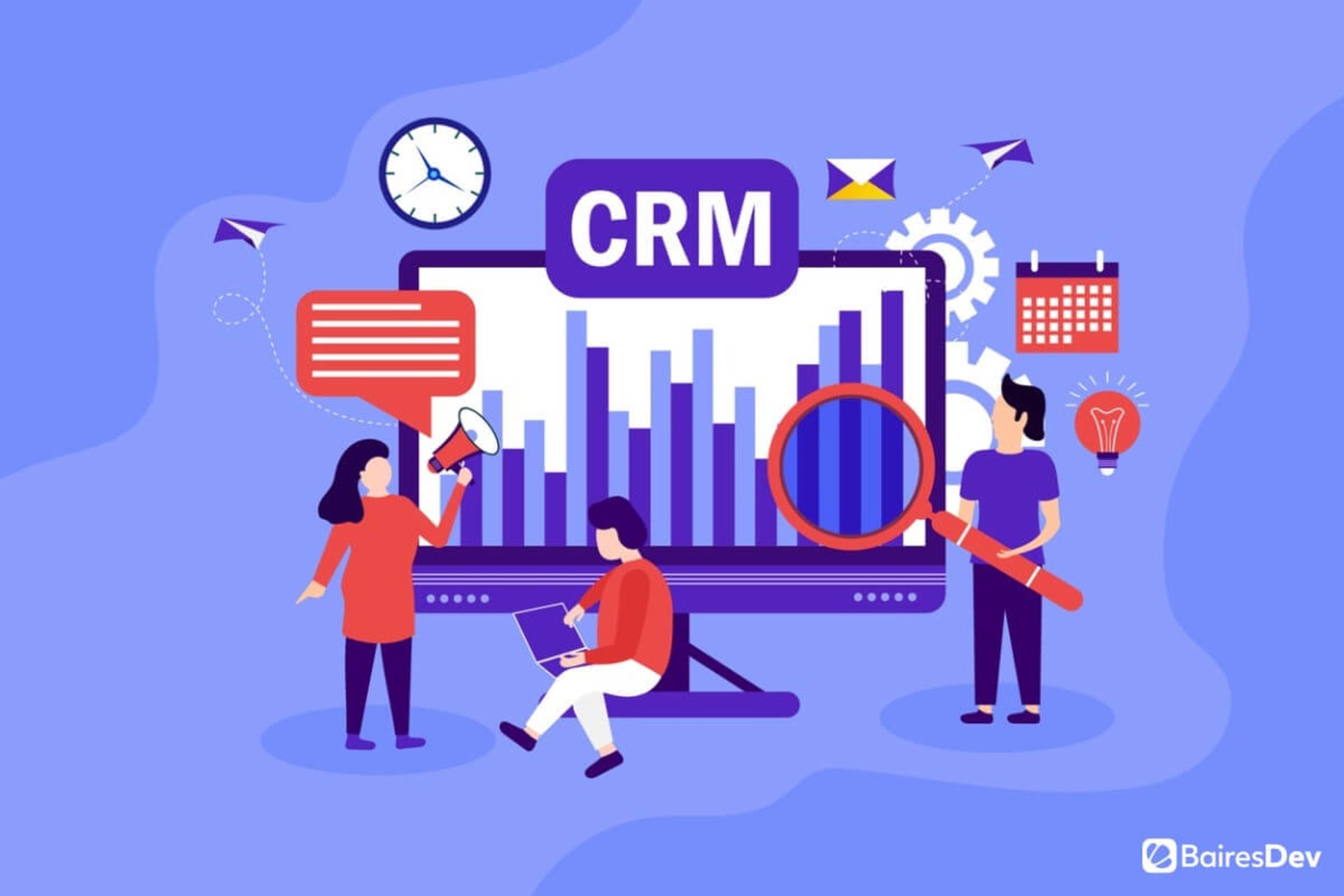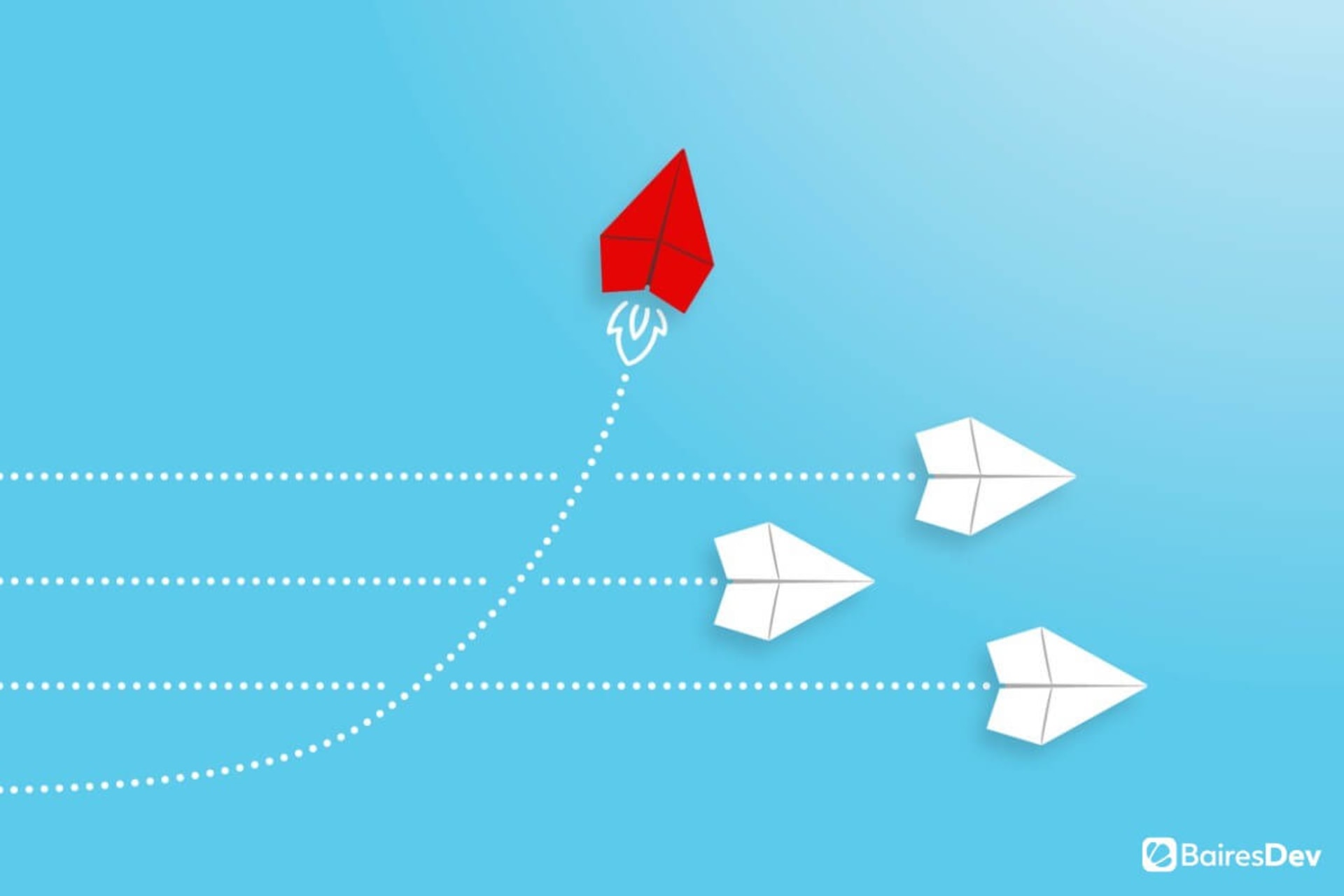Remember the days of the Rolodex? It was only a couple of decades ago when the physical, rotating card holder was the chief system for storing contacts. Naturally, it seems like a rudimentary tool these days, especially since we now have digital customer relationship management systems (CRMs).
In fact, there are so many kinds of CRM software and hardware that businesses have a difficult choice when it comes to managing their customers and contacts. Chiefly, the debate rages on about which is better: cloud CRM vs. on-premise CRM software.
| Criteria | On-Premise CRM | Cloud-Based CRM |
|---|---|---|
| Deployment | Installed and run on the organization’s servers and local devices | Hosted on the vendor’s servers and accessed via the internet |
| Initial Cost | High upfront costs for software, hardware, and setup | Lower upfront costs, usually subscription-based (monthly or annually) |
| Ongoing Costs | Costs for maintenance, updates, and potential hardware upgrades | Updates, maintenance, and hardware costs are usually covered by the vendor |
| Customization | Offers high level of customization | Limited customization compared to on-premise |
| Data Control | Full control over data and processes | Vendor controls data, processes, and security |
| Data Security | Security depends on in-house IT team | Vendor provides security, usually high-standard |
| Accessibility | Accessible only via the local network unless additional infrastructure is set up for remote access | Accessible from anywhere with an internet connection |
| Implementation Time | Usually takes longer due to setup of servers and infrastructure | Quicker to implement as it doesn’t require local infrastructure |
| Scaling | Scaling requires purchasing and installing additional hardware | Scaling is usually as simple as changing the subscription plan |
| System Updates | Updates can be more complex, often requiring downtime | Updates are managed by the provider, often seamless and with no downtime |
| Dependency | Requires an in-house IT team for maintenance and troubleshooting | Dependent on the vendor for support, maintenance, and uptime |
| Best for | Larger businesses or those with specific security requirements | Small to mid-sized businesses, or those needing more flexibility |
CRM software gained traction in the early 2000s, around the same time cloud solutions emerged as a means of storing information online accessible from multiple locations. And since then, both cloud-based CRM software and on-premises solutions have both become mainstream as tools for a wide variety of businesses that depend on client and customer retention and recruiting.
Characteristics of On-premise CRMs
An on-premise CRM involves on-site hardware and software kept at the location where the business is being conducted. Software is typically installed on on-site servers or on individual devices.
A key attribute of this type of CRM is that it can be accessed without an internet connection. This means that if external servers go down or internet outages occur, the business can still use the tool.
Additionally, businesses that use it generally buy the license to the software, meaning they can customize it as needed. A drawback is that this means the company that buys the license is responsible for maintaining and updating the on-premise CRM. This can be expensive and difficult for some businesses. Plus, individuals will need to frequently back up their data to physical servers.
At the same time, on-premise CRMs offer some security measures that cloud-based CRM software doesn’t. Certain business leaders may be more comfortable having complete control over their data, which is stored within their facilities and can’t be accessed online. Moreover, because the company itself is responsible for updates and maintenance, there is a lower likelihood of introducing bugs or unwittingly allowing cybercriminals into their fold.
There are plenty of options when it comes to on-premise CRM software. Some of the more popular ones include:
- Microsoft Dynamics CRM
- ONYX
- Oracle CRM
- SAP
- Siebel
Characteristics of Cloud-based CRM Software
Cloud-based CRM software uses the Software as a Service (SaaS) model, which involves paying a subscription to a company in order to use the CRM. No matter what, cloud-based CRMs mean that you’re accessing the system via the internet, where all the information is stored. Rather than using an on-site server, the data is kept online.
A major benefit of a cloud CRM vs. on-premise solutions is that the information is accessible from any location with an internet connection. This also means that employees are working with the most up-to-date versions of files and documents at any given time, reducing confusion.
The cloud-based CRM is also usually a less expensive option because the provider handles maintenance, backups, and updates. There is no need for costly equipment or intricate installations. Plus, businesses can change their payment and subscription plans as they scale their operations.
Another benefit of the cloud-based option is that many providers offer integration features so the software can easily be used with other tools and platforms.
Some popular cloud-based CRM platforms are:
- Creatio
- HubSpot
- Salesforce
- Zendesk
- Zoho
Businesses Using On-premise and Cloud-based CRMs: Which Solution Is Right for You?
So, here’s the question: which is right for your business? CRM online vs. on-premise software? It really comes down to your unique business needs and preferences.
The Case for the On-site CRM
Large companies often need a high degree of customization, in which case an on-premise CRM is usually the preferable option. Moreover, implementing an on-site solution means they fully own their software, an expense many corporate giants can easily incur. In fact, the costs may even out in the long run because they don’t need to pay the subscriptions associated with cloud-based software.
Another advantage of this model is that businesses are able to fully secure their software as needed to suit their particular needs. Companies will have full control over your data, including any sensitive customer and employee information. This may be the preferable choice for companies that already have many on-premise solutions in place, too, because they can easily integrate the software with other systems.
Ultimately, if many of your employees are working on-site and you have the IT infrastructure — including the technology personnel and resources — to support this type of system, it may be the better option for your CRM needs.
The Case for the Cloud-based CRM
For newer or smaller companies with lower budgets, cloud-based CRMs are often the software of choice. The upfront costs aren’t as hefty — although it’s important to consider the longer-term expenses — and businesses don’t need to worry about having an IT infrastructure in place. Teams can rely on the provider for maintenance and updates.
Plus, as these businesses grow, they can simply change their subscription plans to accommodate their different needs.
As you can probably imagine, cloud-based CRMs are ideal for remote and distributed teams. These systems are accessible from any location with an internet connection, so different team members are able to view and edit the information as needed.
So, when it comes down to it cloud CRM vs. on-premise solution, there’s no clear answer: it depends on what matters most to your business and your organizational needs.
There is a way to blend these 2 solutions: the hybrid approach. For businesses that have some employees on-site and others working remotely, this may be an appropriate model. In this case, you can take the pieces of each system that work best for you and leverage them to suit your needs.
No matter which approach you choose, one thing is clear: in today’s world, you absolutely need a CRM — your business will be lost with it.






